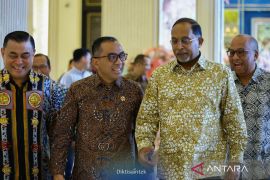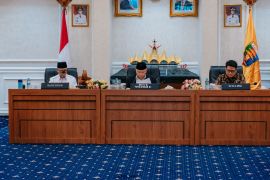"A judicial settlement is different from a non-judicial one. Any judicial settlement tends to result in win or lose solution in a court. But a non-judicial settlement tends to lead to a win-win solution because it is based on consultations to reach an agreement," he stated here on Wednesday.
Different ethnic groups in Indonesia have customary laws to settle horizontal conflicts in the community through consultations. This is a peaceful way to maintain a harmonious relationship, he stressed.
"The culture (of settling problems by consensus) has disappeared nowadays and we have started preferring win-lose settlements. There is no need to refer any problem to a court," he advised.
The issue of gross human rights violations can be settled by consensus, he reiterated.
Seven cases of gross human rights violations remain unresolved. They include the Trisakti case, the Semanggi case, the May 1998 tragedy, and the forced disappearance of activists from 1997 to 1998.(*)
Editor: Heru Purwanto
Copyright © ANTARA 2016











